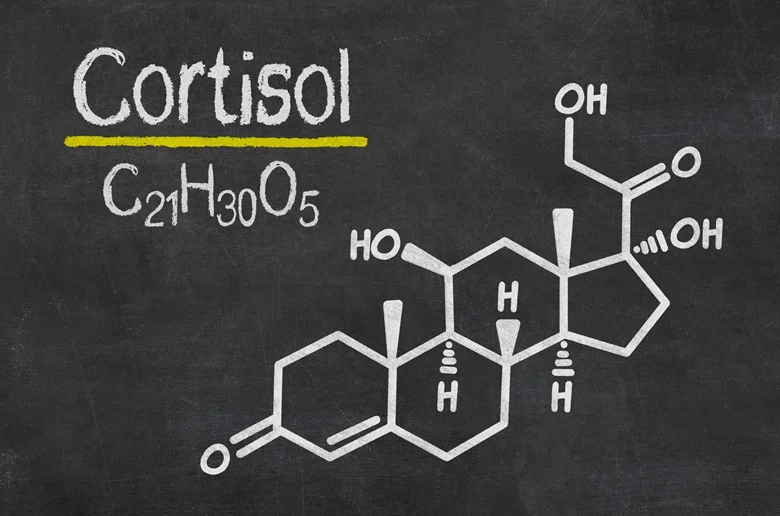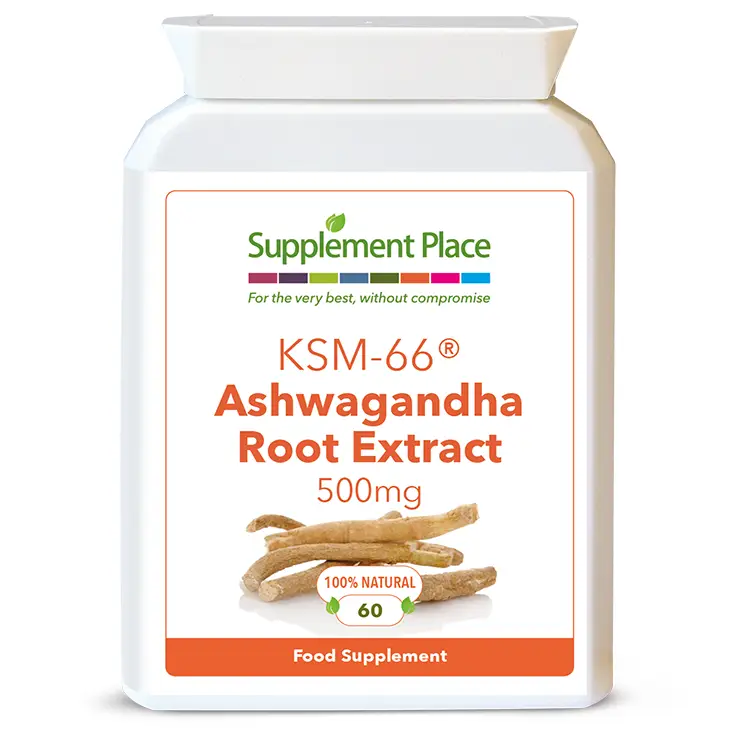Table of Contents
Are you feeling constantly stressed, gaining weight around your middle, or struggling to sleep through the night? These could be signs of elevated cortisol levels in your body. Cortisol, often called the “stress hormone,” plays a vital role in many bodily functions, but when levels remain high for extended periods, your health can suffer in numerous ways.
In this blog we explore the most effective supplements to reduce cortisol levels based on scientific research. Additionally, we share how you can obtain many of these beneficial compounds through your everyday diet, creating a holistic approach to stress management and hormone balance.
Understanding Cortisol and Its Impact on Your Health

Cortisol is a steroid hormone produced by your adrenal glands in response to stress. It helps regulate metabolism, reduce inflammation, control blood pressure, and manage how your body uses carbohydrates, fats, and proteins. When functioning properly, cortisol follows a natural rhythm—highest in the morning to help you wake up and lowest at night to allow restful sleep.
However, chronic stress can disrupt this rhythm, leading to consistently elevated cortisol levels. This disruption can create a cascade of health problems that affect virtually every system in your body. The effects can be both immediate and long-lasting, making cortisol management an essential part of overall health.
When cortisol remains high for extended periods, your body stays in a constant state of “fight or flight,” which can lead to numerous physical and mental health issues. Recognising the signs of elevated cortisol is the first step toward addressing the problem effectively.
Common Signs of Elevated Cortisol Levels
- Weight gain, particularly around the abdomen (visceral fat).
- Impaired immune function and frequent illnesses.
- Digestive problems and irregular appetite.
- Sleep disturbances and insomnia.
- Reduced energy levels and chronic fatigue.
- Mood changes, including anxiety and irritability.
- Decreased cognitive function and brain fog.
- Hormonal imbalances affecting other systems.
Managing cortisol levels is crucial for overall health and wellbeing. While lifestyle factors like stress management, adequate sleep, and regular exercise play essential roles, specific supplements can also help regulate cortisol production and improve your body’s response to stress.
Top Scientifically Proven Supplements to Reduce Cortisol
Several supplements have shown promising results in scientific studies for their ability to help regulate and reduce cortisol levels. Here are the most effective options based on current research:
Ashwagandha: The Stress-Fighting Adaptogen

Ashwagandha (Withania somnifera) stands out as one of the most effective supplements for reducing cortisol levels. As an adaptogen, it helps your body adapt to stress and promotes balance in various systems, including the hormonal system.
Research has shown that ashwagandha can significantly reduce cortisol levels. A 2019 study into the stress-relieving effect of Ashwagandha root extract was conducted with sixty stressed but otherwise healthy adults. Fifty-eight of the participants completed the study and the conclusion found ashwagandha root extract to be beneficial in significantly reducing stress and anxiety.
Ashwagandha works by modulating the HPA axis (hypothalamic-pituitary-adrenal axis), which controls your stress response. By balancing this system, ashwagandha helps prevent excessive cortisol production during stressful situations.
Ashwagandha root extract is available in various forms, including capsules, powders, and tinctures. For stress and cortisol management, a typical recommended dose ranges from 300-600 mg daily of a root extract standardised to contain 2.5-5% withanolides.
Natural dietary sources: While ashwagandha supplements provide the most concentrated form, you can incorporate small amounts by using ashwagandha powder in smoothies, teas, or even some traditional Indian recipes. However, supplements typically provide more therapeutic doses than food sources alone.
Omega-3 Fatty Acids: Essential Fats for Stress Management
Omega-3 fatty acids, particularly EPA (eicosapentaenoic acid) and DHA (docosahexaenoic acid), are crucial for brain health and stress regulation. Research studies show that omega-3s can significantly impact stress hormones, showing decreased cortisol levels and lowered inflammation, particularly among trial participants taking higher doses of omega-3 supplements.
Omega-3 fatty acids work by reducing inflammation and supporting healthy brain function, which helps improve stress resilience and hormone balance. They also help regulate neurotransmitters that affect mood and stress response.
If you struggle to source enough omega-3 from your diet, it is available as a supplement. Our Vegan Omega-3 supplement is produced using algae that is grown in a pharmaceutical graded environment in tanks of pure, filtered water ensuring that it is unpolluted and free from ocean-borne toxins and heavy metals. The capsules provide the same oemga-3 fatty acids EPA and DHA that you get from fish.
Top food sources of omega-3:

Magnesium: The Relaxation Mineral
Magnesium is involved in over 300 biochemical reactions in your body and plays a crucial role in stress response and cortisol regulation. Stress depletes magnesium stores, while magnesium deficiency can increase stress sensitivity—creating a problematic cycle.
When your body is stressed and your cortisol levels increase, medical research has found that the body tries to remedy the problem by using stored magnesium. Low magnesium levels also increase your body’s stress response, further raising cortisol levels. By maintaining a normal or high magnesium level you can avoid this loop.
Magnesium also helps regulate the HPA axis and supports the nervous system’s calming mechanisms, including GABA production—a neurotransmitter that promotes relaxation. Recommended forms which are well-absorbed and less likely to cause digestive discomfort are Magnesium Bisglycinate and Magnesium Malate.
Whilst soil depletion has reduced the magnesium content in many foods it can be sourced from certain food.

Vitamin C: Adrenal Support for Stress Reduction
Vitamin C plays a critical role in adrenal function and cortisol production. Your adrenal glands contain some of the highest concentrations of vitamin C in your body, and this nutrient is essential for proper hormone synthesis and regulation.
Beyond supporting adrenal function, vitamin C is a powerful antioxidant that helps combat oxidative stress, which can be elevated during periods of chronic stress.
A varied diet rich in fruits and vegetables can provide substantial amounts of this important nutrient. The best sources of Vitamin C include:

How These Supplements Work to Reduce Cortisol
Understanding the mechanisms behind how these supplements work can help you make informed decisions about which ones might be most beneficial for your specific situation.
The effectiveness of the supplements stem from their ability to work through multiple pathways in the body. Some directly affect hormone production, while others support the systems that regulate stress responses. This approach explains why many people experience better results when combining several supplements.
HPA Axis Regulation
Many cortisol-reducing supplements work by modulating the hypothalamic-pituitary-adrenal (HPA) axis—the central stress response system in your body. Ashwagandha and certain omega-3 fatty acids help normalise this system’s function, preventing excessive activation during stress and reducing cortisol output.
Adrenal Support
Vitamin C and magnesium directly support adrenal gland function. Your adrenal glands require these nutrients to produce hormones properly and maintain balance between different hormones, including cortisol. Ensuring adequate levels can help prevent excessive cortisol production.
Anti-inflammatory Effects
Chronic inflammation and high cortisol levels often occur together in a harmful cycle. Omega-3 fatty acids, and vitamin C have powerful anti-inflammatory properties that can help break this cycle, indirectly supporting healthier cortisol levels.
Neurotransmitter Balance
Magnesium and omega-3 fatty acids support the production and function of neurotransmitters like GABA and serotonin, which promote feelings of calm and help regulate the stress response, potentially leading to lower cortisol levels.
Antioxidant Protection
Oxidative stress can both result from and contribute to high cortisol levels. Supplements with antioxidant properties, such as vitamin C, and certain compounds in ashwagandha, help protect cells from oxidative damage and support overall hormonal balance. Learn more about oxidative stress here: Antioxidants: The Ultimate Repair Kit for Your Skin, Hair, and General Health
Choosing the Right Cortisol-Reducing Supplement for You
With multiple options available, selecting the right supplement requires considering several factors. Your specific symptoms, health history, and even personal preferences all play important roles in determining which supplement might work best for you.
Factors to consider when choosing supplements to reduce cortisol:
- Your Specific Symptoms – Different supplements target different aspects of stress and cortisol imbalance.
- Health History – Consider existing conditions and medications that might interact with supplements.
- Dietary Preferences – Consider vegetarian/vegan options and allergen-free formulations if needed.
It’s also worth considering whether you prefer to focus on dietary sources of these nutrients or supplement forms. Many people benefit from a combination approach that includes supplements and dietary changes.
For those with conditions like IBS that can cause back pain or other health issues, certain supplement forms may be better tolerated than others. For example, magnesium glycinate is often gentler on the digestive system than magnesium oxide.
Lifestyle Factors That Enhance Supplement Effectiveness

While supplements can be powerful tools for cortisol management, they work best when combined with lifestyle practices that naturally support stress reduction and hormonal balance.
How important is sleep for cortisol regulation? Sleep is extremely important. Lack of sleep directly increases cortisol levels, and high cortisol can disrupt sleep, creating a vicious circle. Prioritising sleep quality may be one of the most effective strategies for long-term cortisol management.
Key Lifestyle Practices for Healthy Cortisol Levels:
- Regular sleep routine – Aim for between 7-9 hours of quality sleep nightly to support natural cortisol rhythm.
- Stress management techniques – Practice meditation, deep breathing, or gentle yoga daily.
- Movement and exercise – Include moderate activity most days without excessive high-intensity training.
- Blood sugar management – Eat regular, balanced wholefood meals to prevent cortisol spikes from hunger. Avoid processed foods and refined carbohydrates/simple sugars where possible.
- Mindful technology use – Take breaks from screens and give yourself intervals where you consciously detox from digital devices.
These lifestyle factors create a foundation for hormonal balance that supplements can enhance further. By addressing stress from multiple angles, you create synergistic effects that can significantly improve cortisol regulation.
Safety Considerations and Potential Interactions
Before starting a supplement regime, it’s important to be aware of potential safety concerns and possible interactions with medication. While the supplements discussed in this blog are generally well-tolerated, they may not be appropriate for everyone in all circumstances.
- Ashwagandha may interact with thyroid medications. It should be used with caution for those who are pregnant or nursing.
- Omega-3 may enhance the effects of blood thinners so if you take anticoagulant medications you should check with a medical professional before taking as a supplement.
- Magnesium can sometimes cause loose bowel movements when taken in high doses. It may interact with certain antibiotics, diuretics, and heart medications. Kidney disease patients should consult a medical professional before taking magnesium supplements.
- Vitamin C may cause digestive upset at high doses. It may also reduce the effectiveness of some chemotherapy drugs.
General Safety Guidelines When Using Supplements:
- Start with lower doses and gradually increase to assess tolerance.
- Tell your GP about the supplements you’re taking.
- Monitor your body’s response and discontinue if adverse effects occur.
If you suffer with digestive health issues, certain supplement forms may be better absorbed and cause fewer side effects. Always choose formulations that match your specific health needs.
Remember that supplements are meant to complement, not replace, medical treatment when needed. If you’re experiencing severe symptoms of hormonal imbalance, it’s important to work with a medical professional to identify and address underlying causes.
Conclusion
Managing cortisol levels effectively often requires a multi-faceted approach which combines targeted supplementation with supportive lifestyle practices. The supplements discussed in this blog – ashwagandha, omega-3 fatty acids, magnesium, and vitamin C, offer evidence-based options for helping to regulate this important hormone.
While supplements can be powerful tools, they work best as part of a comprehensive strategy that addresses the root causes of stress and hormonal imbalance. Combining supplements with stress management techniques, quality sleep, regular physical activity, and a wholefood diet creates a synergistic effect that can greatly improve your body’s cortisol regulation.
If you’re looking for a high-quality supplement to start your cortisol management journey, our ashwagandha root extract provides a potent, standardised dose of this time-tested adaptogen. As always, listen to your body’s response and be patient with the process.
By taking proactive steps to manage cortisol levels naturally, you’re not just addressing stress—you’re investing in your long-term health, energy, cognitive function, and overall quality of life.
Our Promise
When it comes to keeping you informed on health and nutrition, we’re here for you and aim to help where we can. If you would like to discuss any aspect of using natural supplements, or would find advice helpful, please feel free to contact us on 01297 553932.
Always very efficient. Packages are able to come through the letter box which is a bonus. Particularly appreciate the vegan omega 3.
Over several years now they have always delivered me quality products prompty. I can recommend Supplement Place without hesitation.
Excellent service. I love the thin storage friendly containers that take up minimal space in my cupboard. Such a brilliant idea!! ?


